Business
FIRST BANK: TOWARDS REVIVING NIGERIA’S TEXTILE INDUSTRY

By Chinyere Joel- Nwokeoma (NAN)
For many years, until the early 1980s, the Nigerian textile industry was the highest employer of labour, after the public sector. Sadly, the industry is in dire straits battling for survival in recent times.
Among the challenges that confronted the sector were policy inconsistency leading to closure of many textile companies occasioned by poor power supply, smuggling, poor access to finance and high operating cost, among others.
It is unarguable that the closure of many textile companies contributed to the rise in the country’s high unemployment rate, rising insecurity and other social vices.
It is against this backdrop that the Central Bank of Nigeria (CBN) Governor, Mr Godwin Emefiele, recently lamented the country’s descent from being a textile giant to a mediocre player in the world economy.
Emefiele said Nigeria used to be home to Africa’s largest textile industry in the 1970s and early 1980s with the employment of over 450,000 people.
“The textile industry at that time was the largest employer of labour in Nigeria after the public sector, contributing over 25 per cent of the workforce in the manufacturing sector.
“The industry was supported by the production of cotton by 600,000 local farmers across 30 of Nigeria’s 36 states.
“This sector supported the clothing needs of the Nigerian populace, as our markets were filled with locally produced textiles from companies such as the United Textiles in Kaduna, Supertex Limited, Afprint, Texlon, Enpee and Aswani Mills, among others.
“In addition, the cotton growing sector has gone dead, thereby depriving thousands of smallholder farmers the chance to earn a living.
Furthermore, a large proportion of our clothing materials today are imported from China and countries in Europe,” Emeifele stated.
It is against this background that First Bank of Nigeria Ltd, in line with its celebratory 125th anniversary , themed, “Woven into the Fabric of Society”, on Oct. 2 commemorated the country’s independence with a locally made textile attire.
Specifically, the bank set aside Oct. 2 to have all staff wear a locally made textile attire adorned in its 125 anniversary logo and over 18,000 staff across the bank and FBN Holdings participated.
The bank in a statement attributed the initiative to moves to celebrate the country’s 59th Independence anniversary and at the same time support the textile industry.
“The native attire fashion statement by FirstBank and the FBN Holdings Group is rooted in our trust in the diverse opportunities the textile industry provides.
“And indeed its contribution to national growth and development, vis-à-vis the job opportunities, youth and women empowerment, as well as the entrepreneurship driven influence its creates cannot be overemphasised.
“The bank is indeed honored to have been woven into the Fabric of Society in the last 125 years and is committed to keep promoting activities and opportunities that contribute to the growth of the textile industry.” it added.
Apart from the above intitative, FirstBank also provide access to market and provide opportunities for entrepreneurs in the Small Medium Scale Enterprise (SMEs) of the fashion industry with an initiative tagged Fashion Souk.
The bank partners with Eventful Nigeria Ltd with Fashion Souk, a platform that creates an opportunity for players in the fashion industry to exhibit and sell their wares to the thousands of event participants.
The bank also in a bid to ensure sustainability of the industry recently introduced fashion design loan specifically designed to offer financial support to the participants in the textile industry.
The bank’s fashion design loan with a single obligor limit of up to two million naira is targeted at tailors, dressmakers and traders in clothing accessories with no tangible collateral required.
To be eligible for the loan, applicants must have been in line of business for a minimum of three years.
Commenting on the development, Mr Moses Igbrude, Publicity Secretary, Independent Shareholders Association of Nigeria (ISAN), described the initiative as a wonderful concept.
“I hope those in the local textiles value chain will key into it and take advantage of this initiative.
“FirstBank should also ensure that the concept is properly communicated to the larger audience to ensure more patronage of locally made textile,” Igbrude said.
He noted that the Federal Government on its part should encourage institutions that are supporting our local industries by way tax incentives.
Also speaking, Mr Shehu Mikail, National President, Constance Shareholders Association of Nigeria, commended the bank’s support for local fabric and the textile industry.
Mikail said that the initiative would boost the morale of interested bodies who would like to venture into local fabric in promoting our culture to the world.
He said that the bank should focus on the fashion designers who would be ready to promote Nigerian mode of dressing to meet the world class in fashion design.
“This will help in promoting Made in Nigeria fabric and it will also encourage an interested investor to venture into textile industry business and this will tranform our economy,” Mikail stated. (NAN)
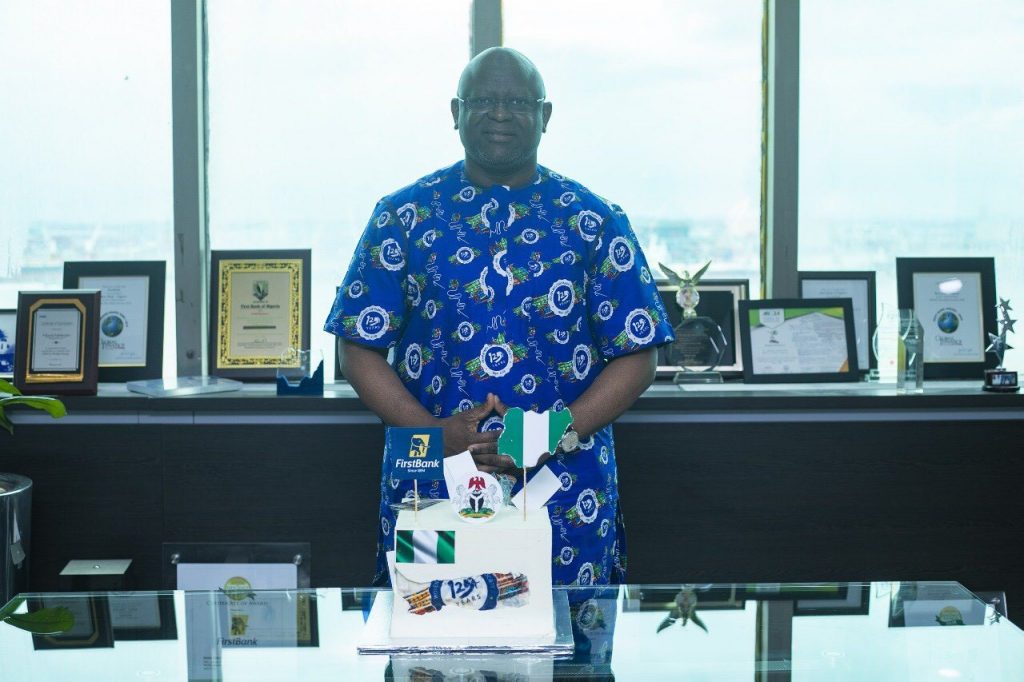
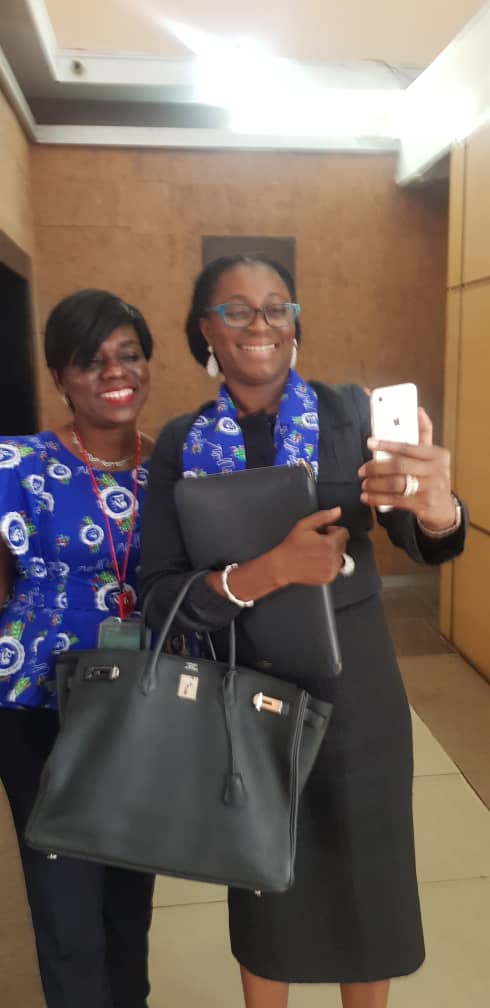
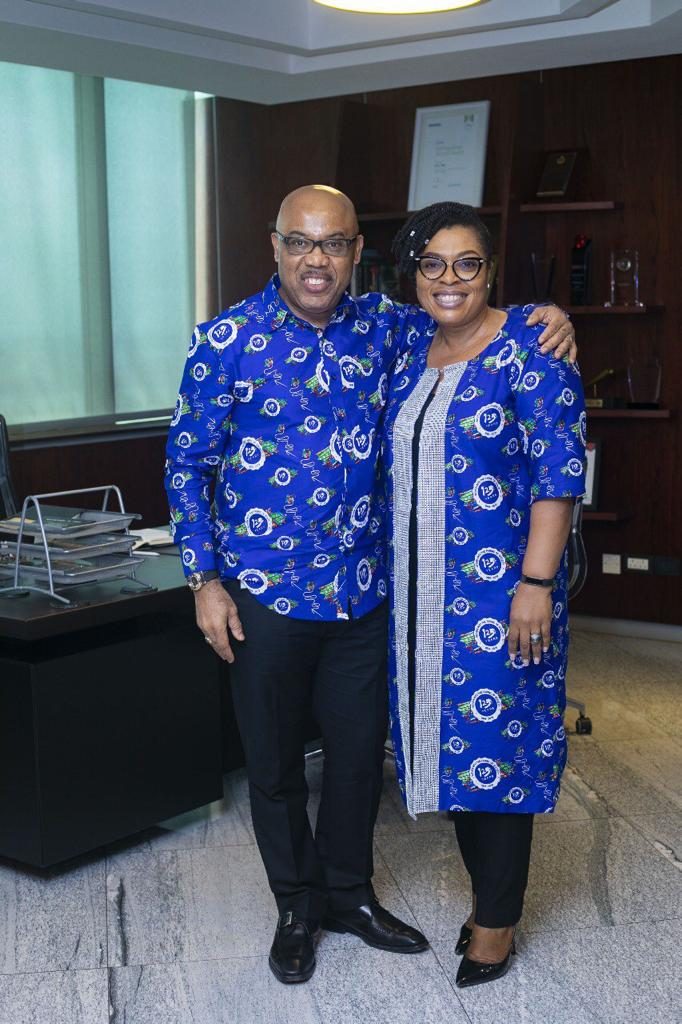
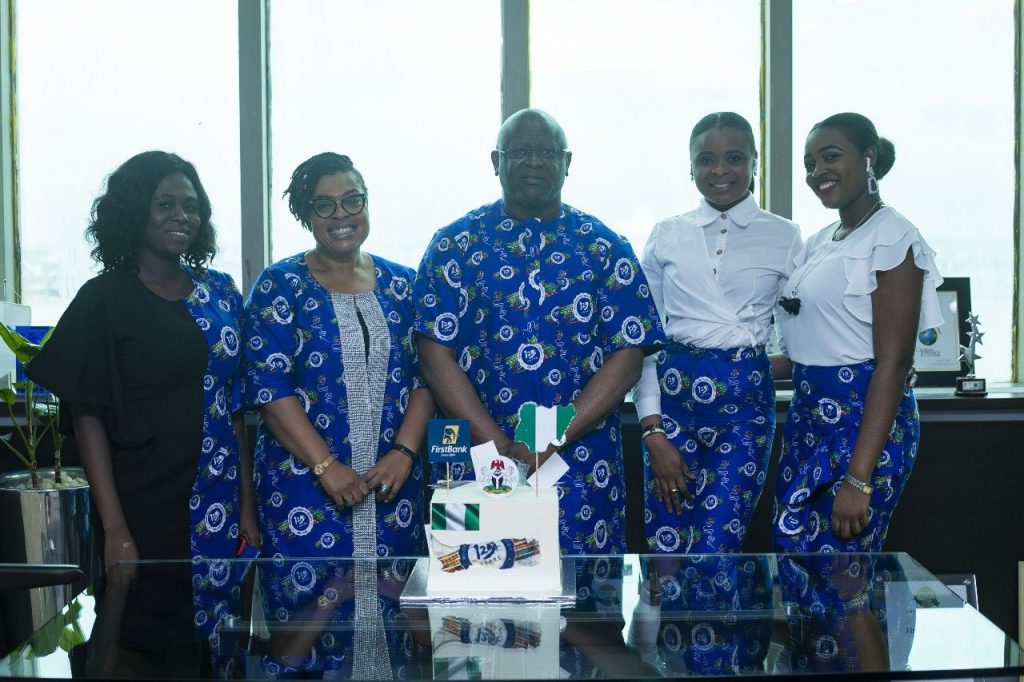
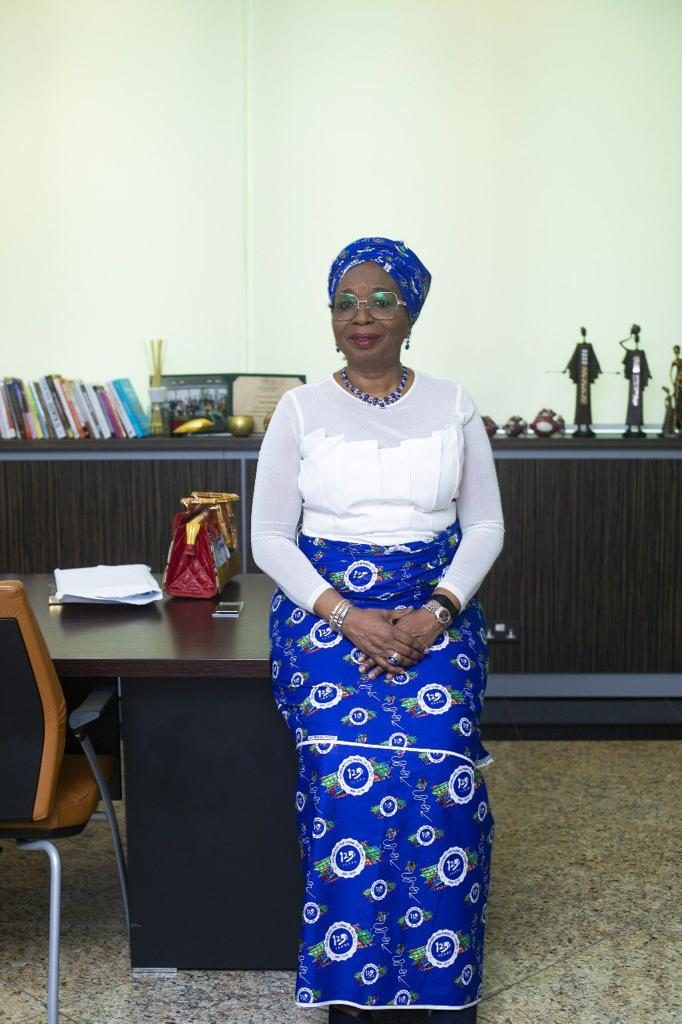
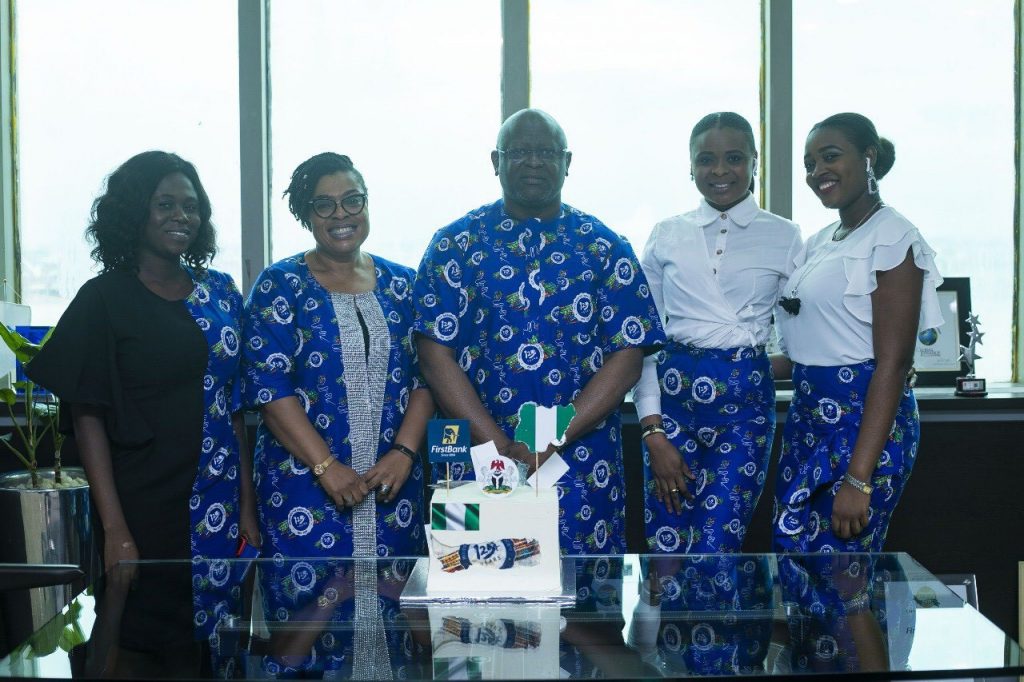
Business
Nigeria’s Inflation Drops to 15.10% as NBS Reports Deflationary Trend

Nigeria’s headline inflation rate declined to 15.10 per cent in January 2026, marking a significant drop from 27.61 per cent recorded in January 2025, according to the latest Consumer Price Index (CPI) report released by the National Bureau of Statistics.
The report also showed that month-on-month inflation recorded a deflationary trend of –2.88 per cent, representing a 3.42 percentage-point decrease compared to December 2025. Analysts say the development signals easing price pressures across key sectors of the economy.
Food inflation stood at 8.89 per cent year-on-year, down from 29.63 per cent in January 2025. On a month-on-month basis, food prices declined by 6.02 per cent, reflecting lower costs in several staple commodities.
The data suggests a sustained downward trajectory in inflation over the past 12 months, pointing to improving macroeconomic stability.
The administration of President Bola Ahmed Tinubu has consistently attributed recent economic adjustments to ongoing fiscal and monetary reforms aimed at stabilising prices, boosting agricultural output, and strengthening domestic supply chains.
Economic analysts note that while the latest figures indicate progress, sustaining the downward trend will depend on continued policy discipline, exchange rate stability, and improvements in food production and distribution.
The January report provides one of the clearest indications yet that inflationary pressures, which surged in early 2025, may be moderating.
Bank
Alpha Morgan to Host 19th Economic Review Webinar

Alpha Morgan to Host 19th Economic Review Webinar
In an economy shaped by constant shifts, the edge often belongs to those with the right information.
On Wednesday, February 25, 2026, Alpha Morgan Bank will host the 19th edition of its Economic Review Webinar, a high-level thought leadership session designed to equip businesses, investors, and individuals with timely financial and economic insight.
The session, which will hold live on Zoom at 10:00am WAT and will feature economist Bismarck Rewane, who will examine the key signals influencing Nigeria’s economic direction in 2026, including policy trends, market movements, and global developments shaping the local landscape.
With a consistent track record of delivering clarity in uncertain times, the Alpha Morgan Economic Review continues to provide practical context for decision-making in a dynamic environment.
Registration for the 19th Alpha Morgan Economic Review is free and can be completed via https://bit.ly/registeramerseries19
It is a bi-monthly platform that is open to the public and is held virtually.
Visit www.alphamorganbank to know more.
Business
GTBank Launches Quick Airtime Loan at 2.95%

GTBank Launches Quick Airtime Loan at 2.95%
Guaranty Trust Bank Ltd (GTBank), the flagship banking franchise of GTCO Plc, Africa’s leading financial services group, today announced the launch of Quick Airtime Loan, an innovative digital solution that gives customers instant access to airtime when they run out of call credit and have limited funds in their bank accounts, ensuring customers can stay connected when it matters most.
In today’s always-on world, running out of airtime is more than a minor inconvenience. It can mean missed opportunities, disrupted plans, and lost connections, often at the very moment when funds are tight, and options are limited. Quick Airtime Loan was created to solve this problem, offering customers instant access to airtime on credit, directly from their bank. With Quick Airtime Loan, eligible GTBank customers can access from ₦100 and up to ₦10,000 by dialing *737*90#. Available across all major mobile networks in Nigeria, the service will soon expand to include data loans, further strengthening its proposition as a reliable on-demand platform.
For years, the airtime credit market has been dominated by Telcos, where charges for this service are at 15%. GTBank is now changing the narrative by offering a customer-centric, bank-led digital alternative priced at 2.95%. Built on transparency, convenience and affordability, Quick Airtime Loan has the potential to broaden access to airtime, deliver meaningful cost savings for millions of Nigerians, and redefine how financial services show up in everyday life, not just in banking moments.
Commenting on the product launch, Miriam Olusanya, Managing Director of Guaranty Trust Bank Ltd, said: “Quick Airtime Loan reflects GTBank’s continued focus on delivering digital solutions that are relevant, accessible, and built around real customer needs. The solution underscores the power of a connected financial ecosystem, combining GTBank’s digital reach and lending expertise with the capabilities of HabariPay to deliver a smooth, end-to-end experience. By leveraging unique strengths across the Group, we are able to accelerate innovation, strengthen execution, and deliver a more integrated customer experience across all our service channels.”
Importantly, Quick Airtime Loan highlights GTCO’s evolution as a fully diversified financial services group. Leveraging HabariPay’s Squad, the solution reinforces the Group’s ecosystem proposition by bringing together banking, payment technology, and digital channels to deliver intuitive, one-stop experiences for customers.
With this new product launch, Guaranty Trust Bank is extending its legacy of pioneering digital-first solutions that have redefined customer access to financial services across the industry, building on the proven strength of its widely adopted QuickCredit offering and the convenience of the Bank’s iconic *737# USSD Banking platform.
About Guaranty Trust Bank
Guaranty Trust Bank (GTBank) is the flagship banking franchise of GTCO Plc, a leading financial services group with a strong presence across Africa and the United Kingdom. The Bank is widely recognized for its leadership in digital banking, customer experience, and innovative financial solutions that deliver value to individuals, businesses, and communities.
About HabariPay
HabariPay is the payments fintech subsidiary of GTCO Plc, focused on enabling fast, secure, and accessible digital payments for individuals and businesses. By integrating payments and digital technology, HabariPay supports innovative services that make everyday financial interactions simpler and more seamless.
Enquiries:
GTCO
Group Corporate Communication
[email protected]
+234-1-2715227
www.gtcoplc.com
-

 celebrity radar - gossips6 months ago
celebrity radar - gossips6 months agoWhy Babangida’s Hilltop Home Became Nigeria’s Political “Mecca”
-

 society6 months ago
society6 months agoPower is a Loan, Not a Possession: The Sacred Duty of Planting People
-

 society5 months ago
society5 months agoReligion: Africa’s Oldest Weapon of Enslavement and the Forgotten Truth
-

 news6 months ago
news6 months agoTHE APPOINTMENT OF WASIU AYINDE BY THE FEDERAL GOVERNMENT AS AN AMBASSADOR SOUNDS EMBARRASSING


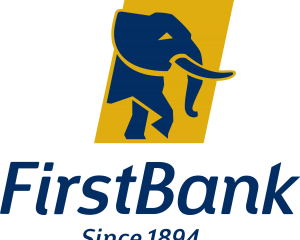





You must be logged in to post a comment Login